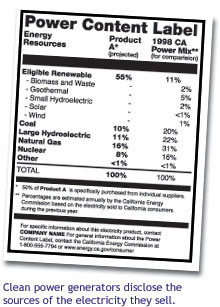|
|
|
|
|
Consumer Guides |
Government Guides |
Consumer News |
Consumer Guide
Index
Submit Article
Consumer News Articles on
Products and Services
Obama Administration
Initiatives
The American Recovery
and Reinvestment Act of 2009
Auctions
Adoption
Alternative Energy
Presidential Energy Address
April 2005
Spectrally
Selective
Low-E Glass
Auto
Biology
Business
Business
Transportation
Directory
Presidential
Address:
Women's Small Business
Owners
Cell Phones
Computer
Consumer News Articles
Cosmetic Surgery and Financing
Culture
Digital Photography
Digital
Photography
Gov sites - Jobs
Disaster Help
Guide
to help
Rebuild Your Home
Drug and Alcohol
Earthquakes
Employment
Administrative Service Managers
Engineering,
Science, Computer
Systems Managers
Education
Educational Software
Distributors
Financial
Currency:
Buying, Selling
Redeeming
Merchant
Account Services
Costs and Fees
Fishing
Government Info
Homeland Security
Health
Health
Insurance
HIPPA
Government Health Guides
Identity Theft
Consumer
Confidential:
The Privacy Story
Insurance
Jets: Private
Jewelry
Machinery
Farm,
Food Processing
Packaging
Marriage
Happy vs. Unhappy
Marriage and Health
Patents & Trademarks
Patents, Trademarks, Copyrights
Real Estate
Mortgage
Modification
100 Q & A's of
Home Buying
Financing Energy
Efficient Homes
Sustainable Design:
Energy Efficient Homes
Taxes
Technology
Time
Travel
Tips
For Women
Traveling Alone
Other Online Guides
e-Commerce
Shopping
________
Disclaimer
Buying Clean ElectricitySource: U.S. Department of Energy
|
|
The electricity industry is changing.
More than one-third of all U.S. consumers can now buy electricity made
from renewable energy sources like the sun, wind, water, plants, and
Earth's internal heat. Such power is sometimes referred to as "green
power", or "clean power".
In most states, you can buy clean power through green pricing programs offered by your power company. And in some of the states that have a competitive electricity market, you can choose an independent company specializing in producing power using renewable resources as your power generator. Choose from the main topics in this section to learn about the process for purchasing clean power and the options available in your state. Can I Buy Clean Power in my State? You can help add electricity generated from renewable energy sources to our nation's electricity supply no matter what state you live in. Here are the types of programs that might be available to you:
Some power companies are now providing an optional
service, called green pricing, that allows customers to pay a small
premium in exchange for electricity generated from clean, renewable
("green") energy sources. The premium covers the increased costs
incurred by the power provider (i.e. electric utility) when adding
renewable energy to its power
generation mix Many power providers are offering green pricing programs to build customer loyalty and expand business lines as they prepare for competition in the electricity market. More than 80 green pricing programs are now available across the country. The following sections will help you learn more about green pricing programs: Buying Clean Power in Competitive Markets
Just as the long-distance telephone industry was restructured, certain
states have restructured their electricity industry in order to allow
competition among electricity generators. In some of these states, clean
power generators Efforts to sell clean power are aimed at consumers who will choose to pay slightly more for renewable energy products and services that reflect their environmental values. The small premium you pay offsets the additional costs power companies incur in purchasing and/or generating electricity from renewable sources. The following sections will help you learn more about buying clean power in competitive markets: Buying green certificates allows you to contribute to the
generation of clean, renewable power even if you can't buy clean power
from your power provider (i.e. electric utility) or from a clean
power generator An increasing number of clean power generators are now separating the power that they sell to power providers from the environmental attributes associated with that power. These environmental attributes, called green certificates (also known as green tags, renewable energy certificates, or tradable renewable certificates), are then sold to companies and individuals that want to help increase the amount of clean power entering our nation's electricity supply. By separating the environmental attributes from the power, clean power generators are able to sell the electricity they produce to power providers at a competitive market value. The additional revenue generated by the sale of the green certificates covers the above-market costs associated with producing power made from renewable energy sources. This extra revenue also encourages the development of additional renewable energy projects. Several organizations offer green energy certificates that can be purchased separate from your current electricity service. A list of organizations selling green certificates can be found on the Green Marketing Activities page of the U.S. Department of Energy's Green Power Network. Electricity isn't something that we can see. So sometimes it's hard to know if you're really getting what you've paid for when you buy into a green pricing or other such clean, renewable power program. To help consumers assess the true environmental impact of their electricity choices, the National Association of Attorneys General has developed the Environmental Marketing Guidelines for Electricity (PDF 201 KB) (Download Acrobat Reader). In addition, a couple other organizations have started providing independent information on or certification of clean power products for consumers. If you're thinking of buying clean electricity, either
through a green
pricing program Technologies Used in Large-Scale Clean Power Production These renewable energy technologies are used to generate
electricity for residential, commercial, and wholesale customers. You may
find one or more of these technologies offered in green
pricing programs
|
Gospel Rock Music
iTunes
Christian Music
by
Crossbridge
Free Samples
www.mycrossbridge.org



 In
some parts of the country, consumers can choose not only how their
electricity is generated, but also who generates it.
In
some parts of the country, consumers can choose not only how their
electricity is generated, but also who generates it.